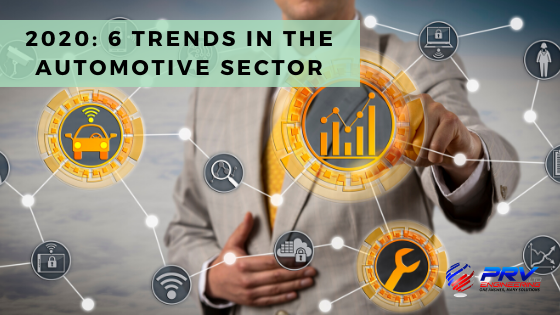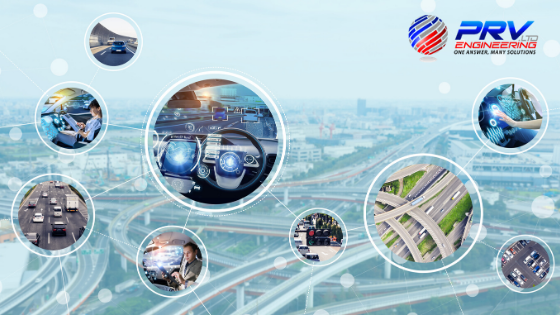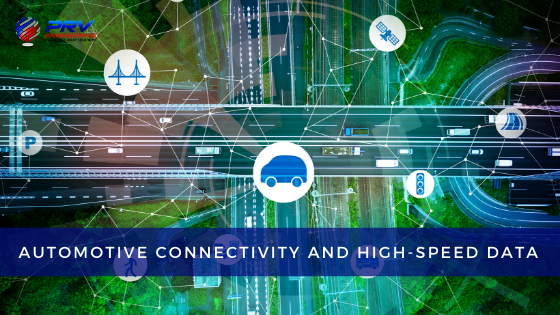
The World Automotive Conference was held in Istanbul on October 17 2019, where experts presented possible solutions for keeping up with future trends in the automotive sector.
From managing global economic challenges to overcoming changing industry demands, 50 speakers added tremendous value to the conversation. There are various issues plaguing the automotive sector including too much traffic, too many cars, bad drivers, inadequate public transport, air pollution and not enough parking.
These may not be the trends that are directly shaping the automotive industry but they are important nonetheless. It clearly indicates some of the consumer feedback which the automotive sector needs to respond to.
The World Automotive Conference 2019
839 senior representatives in the automotive sector from over 40 countries attended the highly anticipated event at the Wyndham Grand Hotel in Levent, Istanbul. The importance and interest in the event are indicated by how many big names attended from across the automotive sector. Some include PwC, Kia Motors Corporation, GE Digital, Robert Bosch GmbH, Groupe Renault, Deveci Tech, Equinix, TOFAS FIAT, TRANSPOLIS, LuxAuto and Schneider Electric among many others.
The World Automotive Conference event aims at sharing new ideas, discussing strategic developments, identify the latest business potential and promote solutions. Here are some of the featured topics they covered:
- Brexit, US Tariff, Trade Agreements and their affects
- MEGA TREND: Electric Vehicles and Changing demand
- Mobility and Future of transportation
- Smart Cities and 5G
- Industry 4.0 and Robotics
- AI and Machine Learning
- Digitalisation and Blockchain
- Connectivity and Security
Automotive Trends To Watch In 2020
There’s no way around emerging mobility and automotive trends as it is happening all around us and will continue to grow. With all the right technologies and business partners in place, it’s vital for the automotive sector to meet the increasing demands of the future.
Fact is, digitalisation of technology has been a primary focus for many and not just the automotive sector. Even though the automotive sector appears mostly mechanical, automation is growing and digitalisation has already (and will continue) to disrupt the industry. Let’s take a closer look at SIX automotive trends that will likely feature prominently in 2020.
1. Changing To A More Consumer-Centric Approach
Companies from across the world are changing their production and marketing strategies through digitalisation. Considering the advanced software available, data collection and management are becoming increasingly important as it can help develop better local and global strategies based on customer feedback.
Kimberly Matenchuk, Senior Director of Sales at GE Digital, United Kingdom, believes that “innovation is dependent on the needs”. Turkey, for instance, can lead innovation in autonomous and electric vehicles because of the demand as a direct result of traffic and pollution problems.
Katharina Hopp, VP Urban Solutions at Robert Bosch GmbH, and Çiğdem Penn, Owner at Xsights Research and Consultancy spoke about how consumers’ feedback led to more innovative ride-share solutions. This, too, was a direct result of finding solutions to traffic jams, lack of parking and pollution.
2. Innovation And Digitalisation
Ömer Özgür Çetinoğlu, CIO at TOFAŞ FIAT said that automotive trends are coming from other sectors such as IT. In fact, they have changed their IT department to what they refer to as “Inspiring IT” as they become a more active agent in innovation and production. They are now a vital cog in the strategic decision-making process, product development, production and the commercial department.
They have now transformed their sales and marketing strategies by digitalising their showrooms. All of the innovation at TOFAŞ FIAT is driven by the implementation of agile methods. They aren’t the only ones as Rheinmetall Automotive AG also believes in adopting innovation agility.
Putting in place an ‘agile mindset’ when it comes to promoting innovation is good for quick adaptation. Everyone in the automotive sector needs to listen to and understand their consumers’ needs.

3. Partnerships Will Become Essential
Partnerships will be key to the future of the automotive sector. Solving urban transportation is a big talking point and finding solutions will come from start-ups, major companies, local and central governments joining forces. Collaboration is vital in all departments and that could result in creating unique solutions for unique problems.
Looking at the ‘car of the future’, Arda Bafra, Executive Director of Design, Automotive, Maxim Integrated, makes an interesting point. Considering our 3D world, we will be drivers and passengers simultaneously once autonomous vehicles become more available and affordable.
This is exactly the type of thinking the industry needs as big brands and start-ups can collaborate to get results quicker. A collaboration strategy is essential for many companies as working with local and central governments is crucial for future growth.
4. Connectivity and High-Speed Data
Another buzzword in the automotive sector is connectivity which will play a crucial part in future cars. Autonomous cars will require many high-speed connections around and inside the vehicles for enhanced safety and driver experience, not to mention the 3K to 4K displays.
Over and above connectivity inside the vehicles, it is also important for gathering data about public transportation, parking, traffic and environmental problems in urban areas. Speaking of collecting data, Dr Taner Göçmez, Vice President, FEV Asia GmbH showed a concept campus autonomous shuttle for shared mobility which will need connected services to collect and process data.
The overall consensus is that connectivity among electric vehicles, diverse mobility and digitalisation are the leading technologies behind driving innovation in the automotive industry for 2020 and beyond.

5. Autonomous and Electric Vehicles
Autonomous and EVs have been a prominent topic but we’ll have to wait a little longer for more efficient models. Even with the challenges in tech and development costs, the industry still seems positive and excited. The argument is that battery technology is not good enough yet but already there have been several innovative ideas.
EV battery tech will continue to develop which will lead to more effective and affordable electric vehicles. Truth is, the EVs are still some distance away from realistically competing with the internal combustion engine performance. Regardless of the R&D still needed, everyone in the automotive industry should focus on what consumers are after and that is greener cars that won’t rely on fossil fuels.
Recommended Read: ‘Developments In Driverless Cars’
Climate Change And Automotive Tech
Increasing consumer and technology forces are impacting the automotive sector and that includes the new generation of consumers driven by climate change. It may not be 100% effective yet but new mobility ecosystems are emerging thanks to Artificial Intelligence and other emerging technologies.
According to Dr Angelika Sodian, Former MD NIO UK, China Expert and Author, believes that customer demand can transform the industry much faster. Other opinions mention government legislation that could encourage the R&D, production and trade of electric vehicles could trigger more innovation in a much shorter time frame.
6. Automotive Online Retailers
Looking at it from a consumer’s perspective, buying a car can be quite a process but it’s made easier with digital channels. Research has shown that customers are increasingly turning to digital as their primary source of information. Considering that “95% of vehicle buyers use digital as a source of information”, the next step for many could be buying cars online.
Even in the current climate, potential car buyers can access tremendous amounts of information. Fact is, the sheer volume and variety of available online material will only increase in 2020 and beyond. Just five years ago, potential buyers visited dealerships an average of five times before making a purchase. Today, that has changed as people now enter showrooms well-informed which means the dealer only has one chance to convert a browser into a buyer.
How Does This Affect OEMs?
While this presents an ideal opportunity for OEMs (Original Equipment Manufacturers), it also poses a threat to the existing dealership structure. This exceptional growth in digital not only applies to buying cars but also the overall driver experience. Many consumers want mobility with communication but the challenge for OEMs is to find out how to make it profitable.
First, they should create a compelling web presence that offers customer access to a digital buying experience. This can be based on elements such as comparison tools, car configurators and other interactive online tools. Secondly, they need to provide an engaging interaction and memorable experience across all touchpoints of the buyer’s journey.
Some innovative retail concepts could be:
- A high-tech digital brand experience centre that features personalised visualisation tools
- “Pop up” stores that advertise a specific product to create buzz
- Establish a better online presence to enable direct sales
Final Thoughts The Automotive Sector
Dealerships will unlikely become obsolete as they are still important in decision making and customer experiences. However, they will play a much smaller role in vehicle research and product comparisons as people will rely on digital channels.
There is so much happening in the automotive world and it’s always interesting to see the resulting research and development. The landscape has certainly changed as some of the new concepts, ideals and technology suggest we are closer to science-fiction than we think. Future cars will be without drivers and they will be able to interact with the occupants while running without fossil fuels.
Looking at 2020 and beyond, conventional methods may not work to effectively meet customer needs. Brands need to get consumers more involved, partnering with major and minor players in the automotive sector and find success in a collaborative environment.
What’s Your Opinion?
What are your thoughts on how technology and other trends could impact the automotive sector in 2020? Do you see any other major developments affecting the industry?
Please share your thoughts in the comment section below or join the conversation on social media using the hashtag, #PRVtech. Follow our blog for all the latest news from around the world focusing on manufacturing, engineering and technology. You can find us on Twitter, Facebook, YouTube or LinkedIn and contact us on our website.
This site uses Akismet to reduce spam. Learn how your comment data is processed.


 Mail:
Mail: 




Leave a Comments